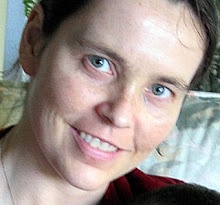This weekend I had time to reflect on the amazing range of patients I’ve seen in the last week, from relatively healthy and alert people who were recovering well from hip or knee replacement surgeries, to brain-dead or severely ill patients whose families were having to face the difficult reality of letting their loved one go. Spanning this medical continuum was a patient who had come in for an elective surgery and ended up cascading through progressively more severe complications (respiratory failure, acute renal failure, sepsis) until the original diagnosis seemed as mild as a head cold. A hospital is truly a theatre of human drama.
On my first day, during morning rounds we stood outside a patient's room as the doctor announced that the patient was being taken off of life support that day – behind us in the room the family had gathered to say goodbye. Strangely, they broke out in a bout of laughter as we stood there. I wondered if they were sharing a funny story about the patient.
Shortly after that, the doctor had to run off to replace a trach tube after a patient (coming out of anesthesia and probably confused) pulled it out. The next day, I shadowed a diet tech as she interviewed a patient with rapidly worsening encephalopathy who was almost incapable of motor control, or coherent speech... the patient’s spouse was haggard and seemed close to tears, but maintained control long enough to give us the patient’s food allergies and preferences. Later that day, a rapid response code was called when the same patient became violent with a therapist.
Today, I was reviewing a chart in the ICU as weeping family members walked the halls together, having just lost their grandmother/mother/wife/sister. While I relish a good cry over a tragic story in a book or movie, here “in the flesh” it is too close to home. In these patients and their families I see myself, my husband, my mother, my brother and his family.
The staff here are respectful and never callous about these situations, but seem able to shrug them off, allowing the drama to go on in the background like a television with the sound turned down. I haven't yet learned this skill and am distracted and unable to pay attention to the RD as she tells me where to find the patient's weight in the chart.
I can’t imagine what the next nine weeks will bring but I hope to witness some victories in addition to the tragedies (sooner rather than later, please), and promise to continue to recognize and acknowledge the drama as it plays out around me.
How to Lose Arm Fat
3 years ago

No comments:
Post a Comment